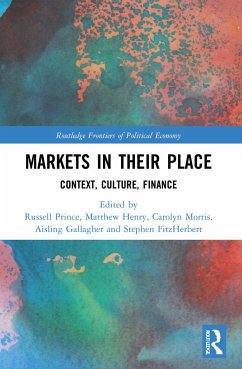Markets are usually discussed in abstract terms, as an economic organizing principle, a generalized alternative to government planning, or even as powerful actors in their own right, able to shape local and national economic destinies. But markets are not abstract. Even as the idea of the market seduces politicians around the world to take advantage of their abstract qualities, they constantly run up against material reality. Markets are always somewhere, in place, and it is in place that the smooth theories of markets falter and fail. More than simply being embedded in particular places, markets necessarily emerge in the various political, social, cultural, and environmental relations that exist in and between places. Markets shape places, but the reverse is also true. This collection of essays approaches markets from the ground up, and from a part of the world often still regarded as peripheral to global capitalism: the South Pacific. With a wide variety of case studies, including on indigenous economies, childcare, agriculture, wine, electricity metering, finance, education, and housing, the authors show how complex local, social and cultural politics matter to how markets are made within and between places, and the insights that can be gleaned from studying markets in this part of the world. They explore the way superficially similar markets work out differently in different places, and why, as well as examining how market relations are constructed in places outside and on the edges of the centres of Western capitalism, and what this says back to how markets are understood in those centres. The book will be of particular interest to scholars and students working in and between economic geography, cultural economy, political economy, economic sociology, and more.
Hinweis: Dieser Artikel kann nur an eine deutsche Lieferadresse ausgeliefert werden.
Hinweis: Dieser Artikel kann nur an eine deutsche Lieferadresse ausgeliefert werden.









